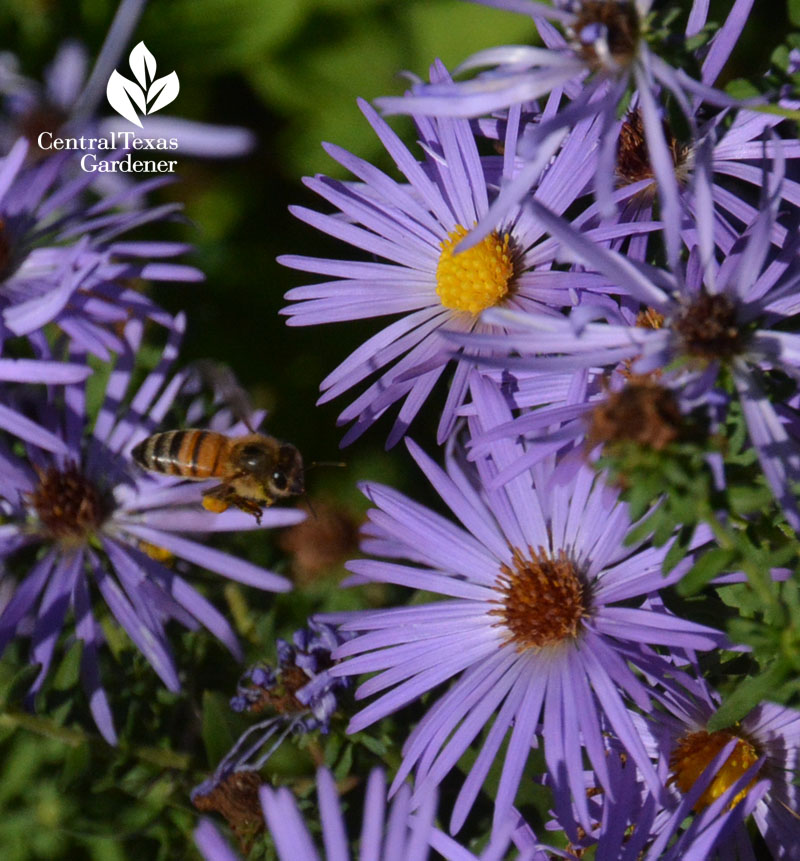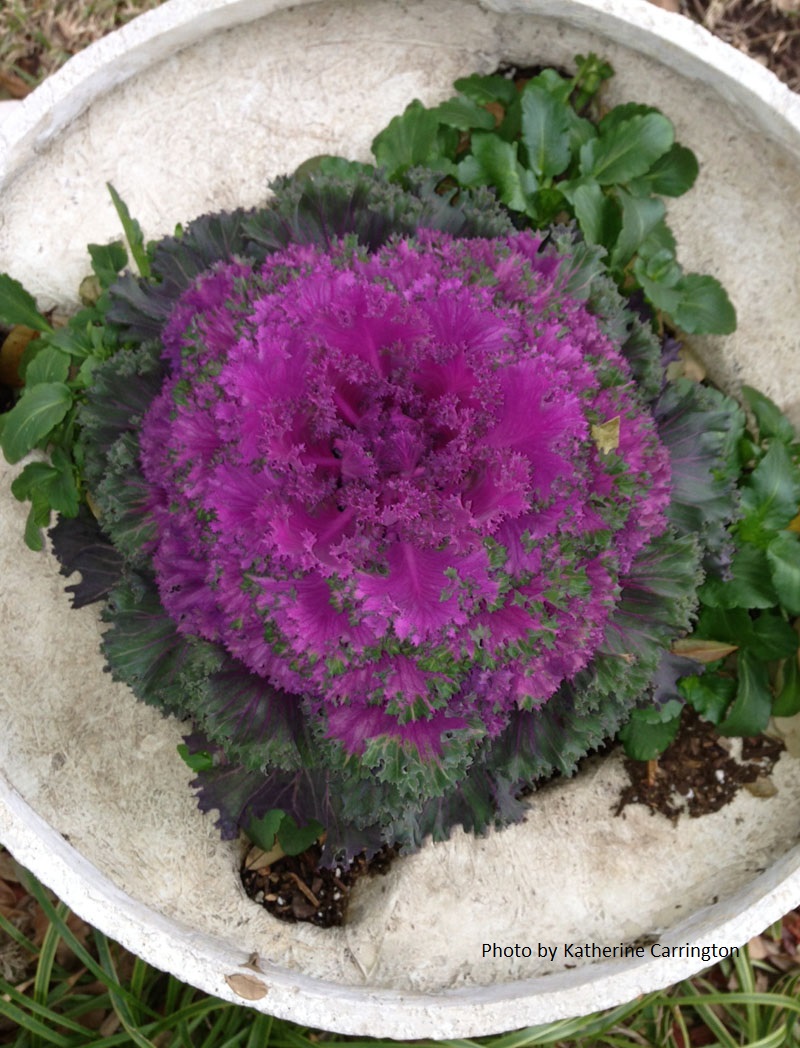November 12, 2015
Color Up Winter with Flowers and Food
Wow, what a difference a week makes! Rain and shorter daylight hours prompted laggard asters and chrysanthemums to board the blooming bus. Bees and other tiny insects went out for Sunday brunch in my garden.



Any second now, those leaves are coming down. Gardeners often ask us, “Can I rake them into my garden beds to improve the soil or do they tie up nitrogen?”

Daphne explains, “Absolutely, put them in the garden! As microbes break down plant material and incorporate it into the soil, they also use nitrogen, effectively taking it away from your plants. But in most home gardens, this would never happen to the extent of causing problems for your plants.” Find out more.
Now that temps are finally falling, Marcus Young from Bloomers Garden Center warms up icy days with colorful flowers and food. From herbs, colorful kales, and red-veined sorrel, he puts a winter spin on summer containers or to fill in those soon-to-be dormant perennials.

Even in a container, mix up edibles for you and for the wildlife. Combine lettuce, pansies (flowers edible and attract butterflies), Swiss chard and snapdragons.

Kale, both ornamental and edible, works great in containers for leafy contrast against snapdragons and pansies.

Sprinkle little viola or pansy flowers onto your salads, add alyssum for fragrance and the bees, and pop it up with adorable double petunias. Watch now for great ideas!

Viewer Picture goes to Katherine Carrington for her ornamental cabbage nestled with pansies, guaranteed to knock your winter cuddly socks off!

One of our top questions is what to plant in shady spots, especially under trees. Daphne’s got the answer with easy-care Berkeley sedge (Carex divulsa).

As a turf grass replacement, its clumps of evergreen floppy leaves pump up lawn personality in bright shade in just about any soil type.

Shaggy, yet tidy, it’s perfect to edge borders and walkways and as foils to other textural forms—here with dianella, palm grass and Ming fern.

I love this comment on Central Texas Gardener’s Facebook page: “Seems like a baby liriope, only less mercenary…”

Berkeley sedge handles temps below freezing, but does need supplemental water in our hottest, driest months. Like any plant, it takes a few years to hit its stride, though you’ll only have to mow if it gets a little ragged.

Daphne tells us: “If you have an area of Berkeley sedge growing under deciduous trees, it’s perfectly fine to use your mulching mower to collect the leaves and give the sedge lawn a little haircut at the same time: just be sure to set your mower on the tallest mowing height.” Find out more.
Like me, I bet you’re finalizing gift lists—either to give or receive (hey, spare your spouse some anxiety). Trisha wraps it up for you with outdoor décor, essential tools, and homemade gifts like bay leaves tied with a pretty bow.

For a tasteful tea-time basket, dry lemon verbena, mint, or other herbs and add a cute mug and tea brewing insert.

AND, for new gardeners or frustrated veterans, Trisha’s all-you-need-to-know book puts you on track for healthy harvests!

On tour: When writers Helen Thompson and Charles Lohrmann refurbished their old home, they faced flooding issues along with soldierly foundation plants and lack of privacy. Designer Patrick Kirwin updated with contemporary, low-water style while moving floodwater away from the house.
Watch their story now!
Thank you for stopping by! See you next week, Linda
tags:

